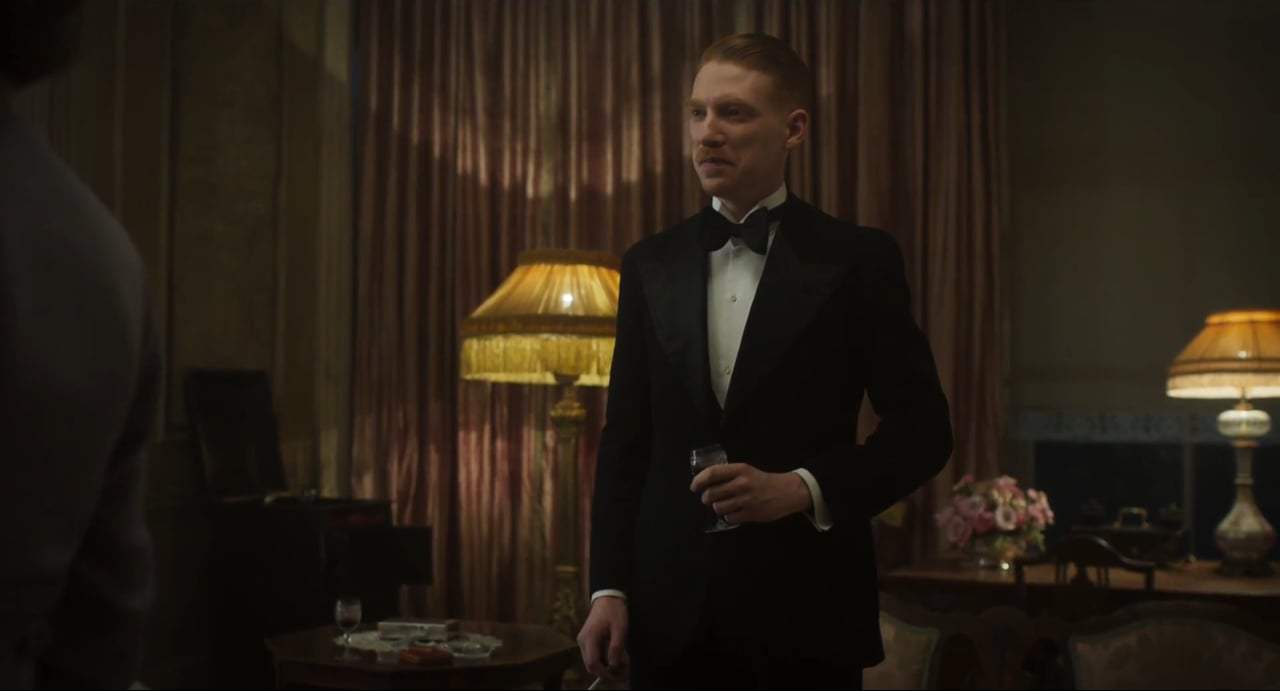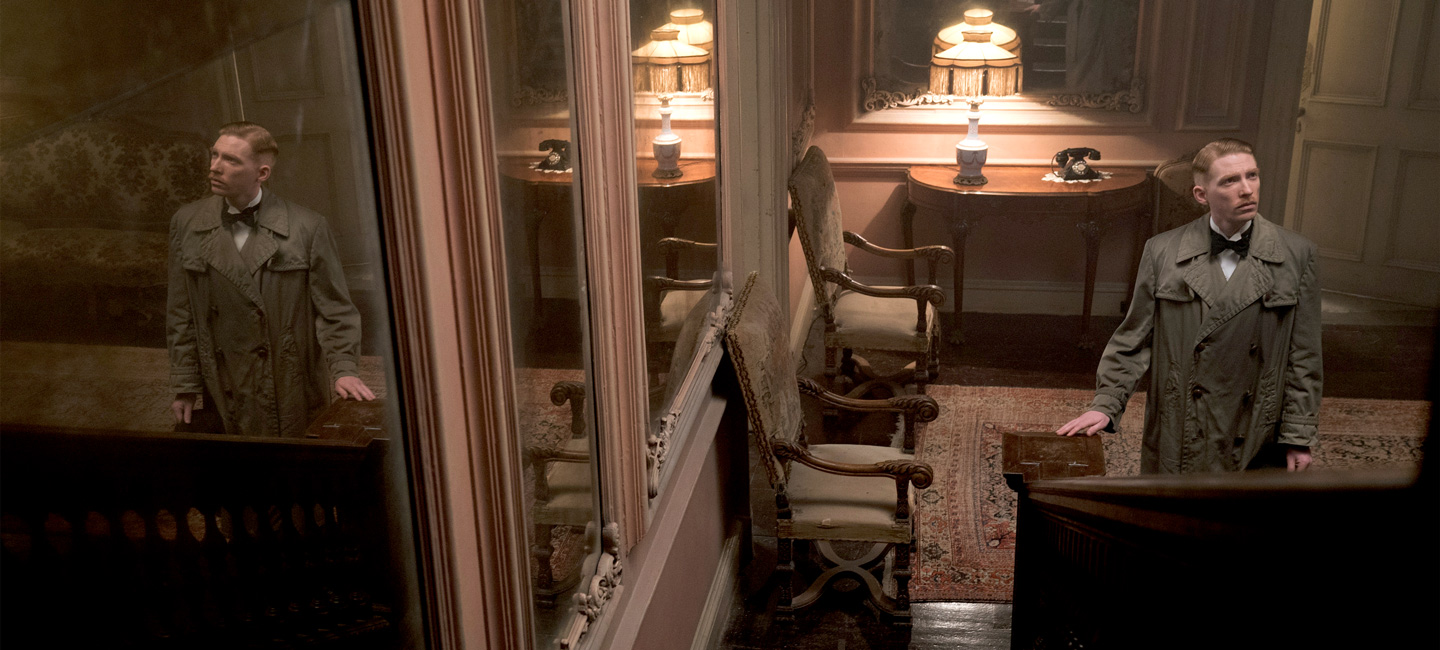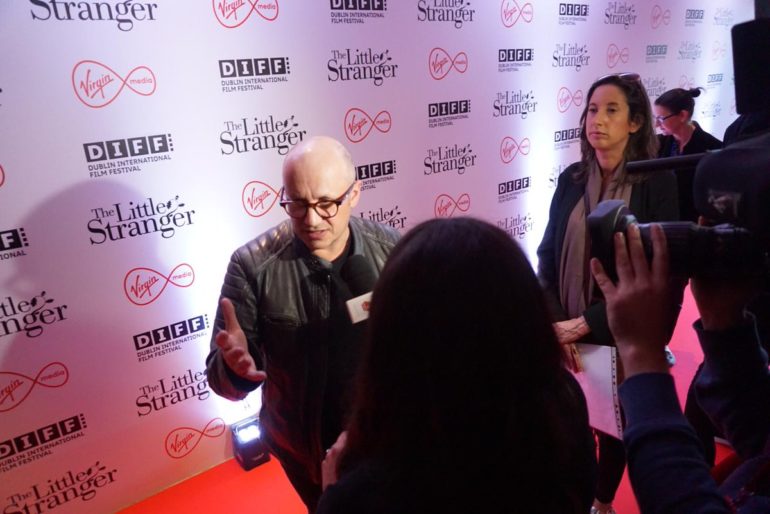Academy Award-nominated Irish director Lenny Abrahamson was in Dublin last week for the European premiere of his latest film, The Little Stranger, at Light House Cinema.
The Little Stranger is directed by Abrahamson and written by Lucinda Coxon, based on the novel of same name by Sarah Waters. Will Poulter plays Roderick Ayres, a disfigured Royal Air Force veteran, who has inherited the 18th century Hundred Halls, where he lives with his mother (Charlotte Rampling) and sister (Ruth Wilson). The film follows Dr. Faraday (Domhnall Gleeson) the son of a housemaid, who has built a life of quiet respectability as a country doctor. During the long hot summer of 1948, he is called to a patient at Hundreds Hall, where his mother once worked. The Hall has been home to the Ayres family for more than two centuries. But it is now in decline and its inhabitants are haunted by something more ominous than a dying way of life. When he takes on his new patient, Faraday has no idea how closely, and how terrifyingly, the family’s story is about to become entwined with his own.
The Little Stranger is produced by Potboiler Productions’ Gail Egan (The Constant Gardener) and Andrea Calderwood (The Last King of Scotland), and Element Pictures’ Ed Guiney (Room). It is executive produced by Cameron McCracken for Pathé, Daniel Battsek for Film4, Andrew Lowe for Element Pictures, Celine Haddad for Screen Ireland / Fís Éireann, and Tim O’Shea for Ingenious.
Scannain caught up with Abrahamson on the red carpet.

Credit: Nicola Dove / Focus Features
This is your first film with Ole Bratt Birkeland. And you seem to have set the camera either too high or too low. It’s off-kilter. Was that a decision that came from you or from him?
We talked a lot about that. We did a lot of planning and we watched a load of stuff and we talked and talked and talked. But actually what always seems to happen with me, is that once I start shooting, the real language of the film reveals itself over the first few days. So some of the ideas that we had going in really set and we kept with, but we also discovered, particularly with Domhnall’s character, that he would always be filmed quite a lot from above. Just subtly above eye-line and that created a feeling because you are with Faraday. He is the protagonist, he is the person who brings you into the film, into the story, that you are also being encouraged to just be a little bit aware of Faraday as something, as a person that is hard to pin down. And not being on the eye-level, being slightly above the eye-level, just allowed him to be distanced from us, as well as not breaking away from him as the central character.
You also use shallow focus when the camera become hand-held and a little less sure.
There’s a use of very shallow depth of field for particular moments in the film. Again that was something that became something, that when we found it, felt really right. And then we used it sparingly and it has a big impact in the film I think when you go to that shallow focus. It puts you inside Faraday’s head in a way that I think that probably for a general audience they don’t know that’s what is doing it, but you just feel like you are inside his subjective experience.
The book is from his point of view and he is the narrator…
He’s an odd narrator. We had to find an equivalent for that.

How do you feel that your style has evolved over the years?
It’s always a difficult thing I think for a person to judge themselves. There are probably other people who can speak to that better, but I think I am looser in how I think about things. I obsess less about making rules for myself. And I think in a way that the rule-based approach, where you would say “okay, what are our parameters in this film?” sometimes that is a way of fending off the horror of all of the possibilities. I’ve made lots of different things so for now, I feel much like I can find meaning in different ways, both visually and in terms of the types of films that I make.
How do you feel that the Irish film industry has changed over the years?
I feel that it is an amazing time. I couldn’t have imagined, and I’m not even talking about myself, but that when Filmbase was being started in the early 80’s and I was at those early meetings as a child of 17 or 18, and it’s so weird that it is gone. But none of us could have imagined that an industry would be as healthy as this, producing as many films, and films that are travelling internationally and having an effect on an international audience. And very kind of outward looking. We used to obsess about what an Irish film should be as if there was one prescription for it. Now I think that there is a different sort of confidence here and that is brilliant. It continues to amaze me how many fine filmmakers we are producing for such a small industry. So I think we are at a very wonderful phase and I hope it can continue.
You come out just after Black ’47 and ahead of Rosie. It’s a busy period for Irish film.
Yeah Lance’s film is doing incredibly well and I’m delighted for him. And John Butler is off in Toronto, and Paddy Breathnach’s in Toronto. There’s just so many people and I remember all of these people, we were all scratching around at the same time. There was no sort of infrastructure at all. It’s lovely to see everybody thriving. I’m just so happy.

